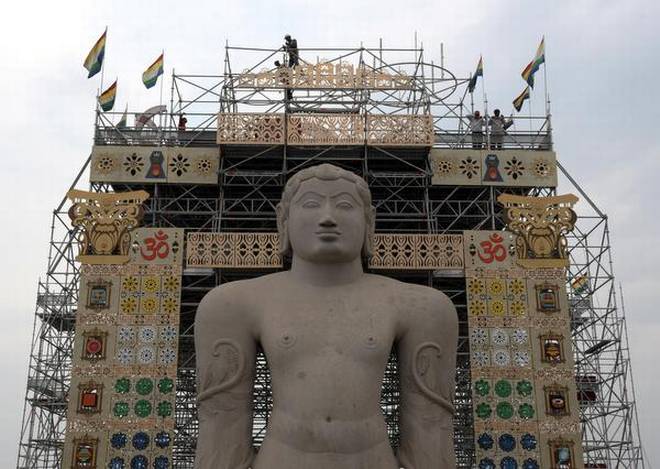
Chaduranga, a writer and director, was Gopalakrishna Adiga’s close companion. They addressed each other in the singular and had no secrets between them. This is a piece that Chaduranga wrote when Adiga passed away in 1992.
M. Gopalakrishna Adiga and I were friends for over 50 years. It felt like he was a part of my body itself. A companion with whom I shared my inner most feelings. When Devraj Urs (former chief minister of Karnataka) passed away, I was enveloped by the same emptiness as I am now in Adiga’s death.
The days Adiga and I spent in Mysore are fresh in my memory. Even when we were poor, we shared the groundnut and coffee on which we subsisted, wrote together, read and discussed together. Just as we loved each other, we respected each other. With all our differences and individual opinions, we remained intimate.
When Adiga wrote his first novel Akasha Deepa (Sky Light), he read it in Mysore’s Anand Bhavana. I had teased him, “this has gone straight into the sky, not on the earth at all.” Responding to the novel, “The prose is good, it is poetic. But there is no life in it,” I had told him. Adiga didn’t take offence to my blatant criticism. “You are right,” he agreed with me and took the novel home. Then he came with the manuscript of his second novel, “Anathe”. He read this also in Anand Bhavan. This was a novel that gave me happiness. You could see the influence of Shivaram Karanth in it, yet, it retained Adiga’s signature style.
Adiga was a man of enormous self-esteem. I have not met another human being who was like him. Call it arrogance if you please. It is important for a writer to have this quality. But his self pride was not the kind that looked down upon others, it was that which treated everyone like an equal: he had a rare dignity that didn’t treat the self as any different from the other.
Many lines from Adiga’s poetry have been guiding beacons of my life. “Ninage Neene Geleya, Ninage Neene” (You are your own friend, You for yourself) has filled me with so much courage. And the line, “Iruvudellava Bittu Iradudaredege Tudivude Jeevana” (Life is about yearning for all things that you do not have), has conveyed so many things to me!
In those days, “Yaava Mohana Murali Kareyitu” was my favourite poem. I used to constantly hum it in the bathroom. Aa. Na. Kru. would make me sing this and experience a great deal of happiness.
“Where is he now, that friend whose shoulder was the one to lean on.”
November, 1992.
Translated from Kannada by Deepa Ganesh
These essays — Gourish Kaikini, Chaduranga, and Ramachandra Sharma (on Page 11) — have been published in Mohana Murali (2009), a collection of essays on Gopalakrishna Adiga, edited by N. Vidyashankar and M. Jayaram Adiga
source: http://www.thehindu.com / The Hindu / Home> Entertainment / February 15th, 2018


